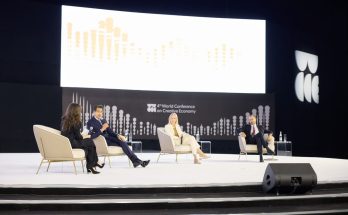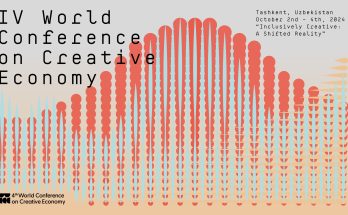 In the lead up to global agreement on climate change by the end of this year in Paris, United Nations Framework Convention for Climate Change (UNFCCC) requested member countries to submit their “Intended Nationally Determined Contributions” (INDCs) before the negotiations for the Paris agreement start. Much optimism and scepticism surround the INDCs, a term introduced in Warsaw 2013 (COP 19). By 2014, the phrase was mainstreamed in the discussions on Paris Agreement and is now seen as a pragmatic approach to limit global temperature to two degrees centigrade. To understand and compile diverse viewpoints of the national stakeholders on the INDCs, ORF conducted a study to solicit national stakeholder perspectives. In order to corroborate the results of the study, roundtable discussion on “Discourse on Politics and Priorities of Indian INDCs” was organised on April 30, 2015 in Delhi.
In the lead up to global agreement on climate change by the end of this year in Paris, United Nations Framework Convention for Climate Change (UNFCCC) requested member countries to submit their “Intended Nationally Determined Contributions” (INDCs) before the negotiations for the Paris agreement start. Much optimism and scepticism surround the INDCs, a term introduced in Warsaw 2013 (COP 19). By 2014, the phrase was mainstreamed in the discussions on Paris Agreement and is now seen as a pragmatic approach to limit global temperature to two degrees centigrade. To understand and compile diverse viewpoints of the national stakeholders on the INDCs, ORF conducted a study to solicit national stakeholder perspectives. In order to corroborate the results of the study, roundtable discussion on “Discourse on Politics and Priorities of Indian INDCs” was organised on April 30, 2015 in Delhi.
The first panel looked at the politics of INDCs. It took cognisance of the fact that there had been a paradigm shift in climate negotiations: where once climate conferences had negotiated commitments, they now operated through contributions, marking a shift from a top-down to a bottom-up approach. The discussion raised a number of important technical questions: what would be the relationship between INDCs and the UNFCC? What would be the legal nature of the Paris agreement? Concerns were raised that the INDC process was taking an unconventional approach by asking countries to submit their contributions prior to the conference in Paris. Without any clarity on what the legal status of the Paris agreement will be, some believed that this amounted to putting the ’cart before the horse’. The experts on the panel also identified how India’s development deficits need to be taken into account as it participates in climate negotiations. Addressing India’s development needs will have an impact on emissions, so India needs to make a strong case for the principles of equity and CBDR (Common but Differentiated Responsibility). It needs to communicate that India’s contributions to the climate will be both ambitious and equitable.
Only a small trickle of INDCs has been submitted by other countries. So there isn’t much by way of international examples for India to consider. The EU has said that it will reduce its carbon emissions by 40% by 2030, while Mexico has submitted both conditional and unconditional INDCs. The format is such that countries are free to include whatever their core interests are in their INDCs. There is a wide perception that INDCs should be kept simple. But India cannot limit its INDCs only to mitigation targets, and adaptation must be a key component. The INDCs should include provisions for compensation of loss and damage caused by climate change-induced natural disasters. Panellists pointed out how it is impossible to predict what the state of the economy will be if we project very far into the future, especially in the case of a developing economy which undergoes sweeping structural changes. Uncertainty about what technology will be available in the future makes planning for the long-term difficult since it makes the estimation of cost very unreliable. There is a trade-off between ambition of INDCs and chances of its success, so INDCs should be made relatively flexible. They should make up a floor, rather than a ceiling to countries’ contributions. Gradually, as countries live up to their short-term promises, with confidence building up, there develops an environment in which ’ratcheting up’ can occur.
INDCs should be looked at as an opportunity rather than a burden. They can help drive sustainable development in India. Noting the precedent set by Mexico, one of the speakers suggested that India should submit two kinds of mitigation contributions: an unsupported category which is in line with CBDR and development priorities, and a supported category which would depend on financial support and technology transfer. The latter should be very ambitious. There need not necessarily be a trade-off between fighting climate change and economic growth. Good climate policy can mean good policy generally. Many of the measures which would be climate-friendly have significant co-benefits for the economy and society.International climate negotiations can even be a spur for domestic policy reform and can help in the formulation of better policies, suggested a panellist. However, all stakeholders agreed that India’s INDCs must include adaptation as well as mitigation, and should raise the issues of technology transfer and financial aid, underlining the importance of equity.
Dr.VikromMathur of ORF presented the key findings of the ORF INDC, followed by the first panel on the politics of INDCs, chaired by Amb. ChandrashekharDasgupta. Dr. Ajay Mathur, Director, Bureau of Energy Efficiency and Raman Mehta, Advisor, Vasudha Foundation were the panellists. The second panel focussed on the contents of the INDCs and was chaired by Dr. Prodipto Ghosh, Chairman of the Taskforce on Climate Change, FICCI with Dr. Rajat Kathuria, Director, ICRIER and Sanjay Vashisht, Climate Action Network, as panellists.
Courtesy : ORF – National stakeholder dialogue on India’s ‘INDCs
Author Profile
- India Writes Network (www.indiawrites.org) is an emerging think tank and a media-publishing company focused on international affairs & the India Story. Centre for Global India Insights is the research arm of India Writes Network. To subscribe to India and the World, write to editor@indiawrites.org. A venture of TGII Media Private Limited, a leading media, publishing and consultancy company, IWN has carved a niche for balanced and exhaustive reporting and analysis of international affairs. Eminent personalities, politicians, diplomats, authors, strategy gurus and news-makers have contributed to India Writes Network, as also “India and the World,” a magazine focused on global affairs.
Latest entries
 DiplomacyJanuary 5, 2026India walks diplomatic tightrope over US operation in Venezuela
DiplomacyJanuary 5, 2026India walks diplomatic tightrope over US operation in Venezuela India and the WorldNovember 26, 2025G20@20: Africa’s Moment – The Once and Future World Order
India and the WorldNovember 26, 2025G20@20: Africa’s Moment – The Once and Future World Order DiplomacyOctober 4, 2025UNGA Resolution 2758 Must Not Be Distorted, One-China Principle Brooks No Challenge
DiplomacyOctober 4, 2025UNGA Resolution 2758 Must Not Be Distorted, One-China Principle Brooks No Challenge India and the WorldJuly 26, 2025MPs, diplomats laud Operation Sindoor, call for national unity to combat Pakistan-sponsored terror
India and the WorldJuly 26, 2025MPs, diplomats laud Operation Sindoor, call for national unity to combat Pakistan-sponsored terror







